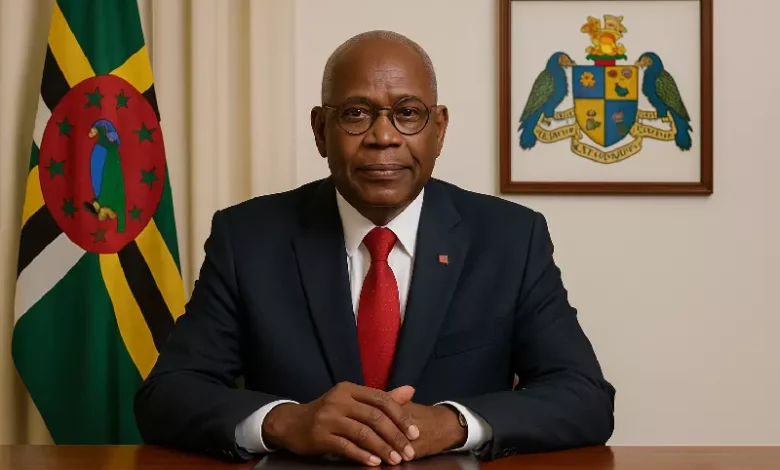Head of State of Dominica

The Head of State of Dominica refers to the official representative of the unity and legitimacy of the Commonwealth of Dominica. Since the island became a republic within the Commonwealth on November 3, 1978, the Head of State has been the President of Dominica, replacing the British monarch as the symbolic and constitutional leader.
Historical Development of the Head of State
Before achieving independence, Dominica was an Associated State of the United Kingdom, with the British monarch as Head of State, represented locally by a Governor. The transition to full sovereignty in 1978 led to the establishment of the President of Dominica as the Head of State, in line with the island’s new republican status.
The creation of a locally elected Head of State was a vital expression of Dominica’s political maturity, affirming its identity as a fully independent nation while retaining membership in the Commonwealth of Nations.
The change also reflected broader movements across the Caribbean during the 20th century, as many former colonies sought greater control over their constitutional arrangements while maintaining cooperative international ties.
Duties and Powers of the Head of State
The Head of State of Dominica plays a primarily ceremonial and constitutional role, distinct from the executive powers wielded by the Prime Minister of Dominica.
Key responsibilities of the President as Head of State include:
- Formally appointing the Prime Minister, other Ministers, and parliamentary officials following general elections.
- Assenting to bills passed by the House of Assembly, thus enacting them into law.
- Representing Dominica at official state functions, both domestically and internationally.
- Acting as the guardian of the Constitution, ensuring that government actions comply with the nation’s legal framework.
- Summoning, proroguing, and dissolving Parliament based on constitutional advice.
While the President exercises these functions primarily on the advice of the Prime Minister or Cabinet, the office symbolises the unity and legitimacy of the Dominican state.
How the Head of State is Selected
Unlike monarchies, where the Head of State is hereditary, the President of Dominica is elected by the Parliament. The election process is defined in the Constitution and involves a nomination by the Prime Minister in consultation with the Leader of the Opposition.
If the two sides cannot agree on a nominee, the President is elected by a two-thirds majority vote in the House of Assembly. This approach reflects Dominica’s commitment to ensuring that the Head of State enjoys broad parliamentary support, reinforcing the role’s impartiality and symbolic representation of all Dominicans.
The term of office is five years, and Presidents may serve multiple terms if re-elected.
List of Heads of State Since Independence
Since 1978, Dominica has had several distinguished individuals serve as Head of State, beginning with:
- Sir Louis Cools-Lartigue (Governor before independence, 1967–1978)
- Sir Louis Cools-Lartigue (Acting President at independence, briefly in 1978)
- Sir Louis Cools-Lartigue was succeeded by Sir Clarence Seignoret, who served as Dominica’s first substantive President after independence.
Subsequent Presidents have included:
- Sir Clarence Seignoret (1983–1993)
- Crispin Sorhaindo (1993–1998)
- Vernice Bellonie-Savage (Acting, briefly in 1998)
- Dr. Nicholas Liverpool (2003–2012)
- Eliud Williams (2012–2013)
- Charles Savarin (2013–2023)
- Sylvanie Burton (2023–present), notably the first Indigenous person and first woman to be elected President in Dominica’s history.
Each President has contributed to the strengthening of democratic norms and the stability of Dominica’s political system.
Symbolic Importance to Dominica
The Head of State of Dominica serves not only as a constitutional figure but also as a symbol of national unity, representing Dominica’s sovereignty and independence. Through participation in ceremonies, promoting national values, and encouraging social initiatives, the President plays a vital role in fostering patriotism and civic pride among Dominicans.
The President also represents Dominica in Commonwealth activities, regional collaborations, and international engagements where Heads of State participate independently from their governments.
Serving both as a constitutional guardian and a national symbol, the office plays a vital role in safeguarding the integrity and unity of Dominica.




